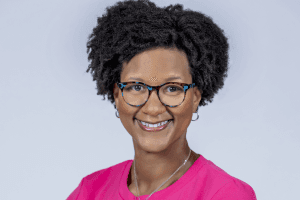Election season is here in Georgia. Qualifying is wrapped up, campaign signs are sprouting on lawns, and neighbors are already talking about who they believe should lead their community.
For candidates, it’s both nerve-wracking and energizing—a reminder of how important this work really is.
It can also be a time when differences feel sharper. I’m grateful our city elections are non-partisan. That’s one of our greatest strengths. It keeps us focused on what matters most: our residents, our communities, and the future we’re building together.
At the end of the day, people expect the basics from the city government: safe neighborhoods, clean water, streets without potholes, and opportunities to prosper. None of those expectations come with party labels. A pothole isn’t Republican or Democrat. Trash pickup doesn’t lean left or right. These are everyday needs of people who want a good life and a strong future for their families. And the only way to meet those needs is by coming together and finding common ground.
Real progress takes root in that shared space. On common ground, we put aside the labels, turn down the heat, and focus on what really matters. We see each other not as opponents but as neighbors. We share ideas, compromise when we need to, and create solutions that reflect the best of our collective wisdom.
Earlier this year, GMA and Georgia Trend celebrated that spirit with the Visionary City Awards: nine shining examples of what’s possible when communities roll up their sleeves together. Metter leaned into local agriculture with its Georgia Grown Community Campaign. Thomaston is preparing the next generation of civic leaders through its Pathway Internship Program. Union City transformed its Eagles Nest Sports Complex into a multigenerational gathering place that builds connections across neighborhoods. The other winners—Cornelia, Hogansville, Forest Park, Perry, Duluth, and South Fulton—each showed the same creativity and collaboration in their own unique ways, proving that solutions aren’t partisan. They’re practical.
Examples like these remind me that lasting change doesn’t come from division; it comes from partnership and persistence. Common ground isn’t just a phase; you can see it alive in cities that honor local strengths, empower young people, and connect communities in meaningful ways.
As city leaders, we have to carry that same spirit into this election season and beyond. Elections matter, but the real work begins once the ballots are counted: building, planning, solving, and serving. We won’t agree on every detail, but if we keep residents’ best interests at the center of our decisions, we’ll always move forward together.
Cities hold a unique responsibility in this moment. In a world where division makes headlines, we can offer a different story; one of neighbors working side by side, showing that real solutions come when we focus on what unites us.
Finding common ground isn’t always easy, but it’s always worth it. As mayor, I’ve learned that the hardest decisions get easier when we leave the partisanship at the door. And when we choose collaboration over conflict, we don’t just solve today’s problems. We build a foundation of hope, resilience, and opportunity for the generations who will inherit the communities we’re shaping now.

